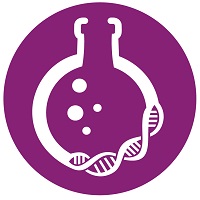Bioanalytics
Symposium: Using Mass Spec to Support PD/PK
Uncover the Power of Mass Spectrometry Imaging (MSI) for Spatially Resolved Analysis of Biological Tissues
Tuesday, November 11, 2025
9:30 AM - 10:00 AM CT
Location: 221 CD

Erin H. Seeley, PhD (she/her/hers)
Director, Mass Spectrometry Imaging Facility
MD Anderson Cancer Center
Houston, Texas
Speaker(s)
Mass spectrometry imaging is a powerful technique for the detection of endogenous and exogenous molecules in tissue sections, without the need for target specific reagents, making it an excellent tool for biomarker discovery. Depending on the sample preparation used, various classes of biomolecules can be detected, including drugs/metabolites, lipids, glycans, proteolytic peptides, and proteins. It is also possible to image multiple classes of molecules sequentially from the same tissue section, as well as to integrate mass spectrometry imaging data with other spatial omics data including transcriptomics and targeted proteomics. This presentation will provide a brief introduction to the MSI technology and highlight state-of-the-art applications that are advancing the field of spatial biology.
Learning Objectives:
- Upon completetion, participants will be able to understand the process by which mass spectrometry imaging data is collected from thin tissue sections.
- Upon completetion, participants will be able to understand the types of molecular information that can be gained from a mass spectrometry imaging experiment.
- Upon completetion, participants will be able to understand how mass spectrometry imaging data is being integrated with other spatial omics technologies for a deeper understanding of spatial biology.

